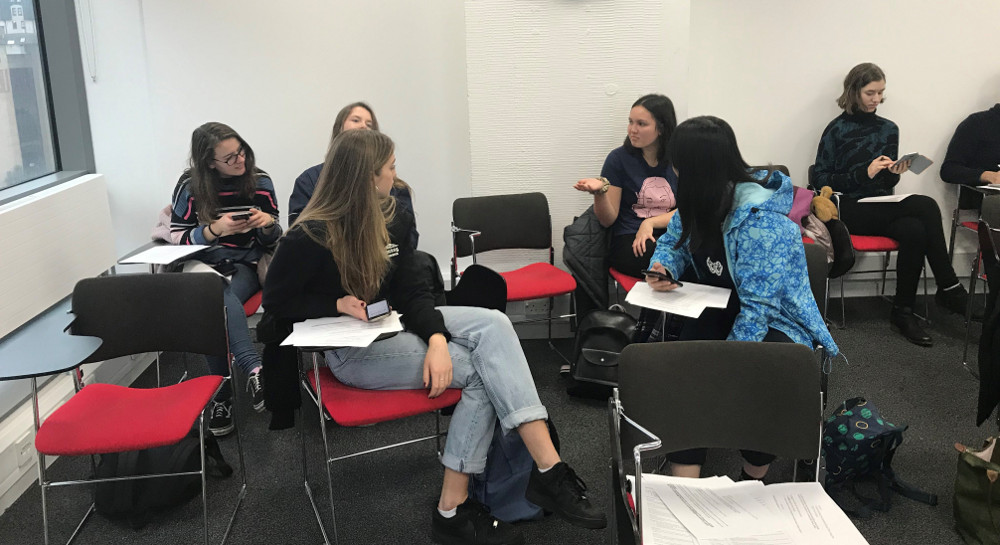
Following on from Karen and Mariana’s post, Samuel Shteinberg, a Sustainable Development student, and Nathan, a Biology student, reflect on their experiences of ‘facilitated group discussions’, which are an integral part of the Our Changing World course tutorials…
Samuel
I walked into my first Our Changing World (OCW) tutorial ten minutes late. The tutor was still talking about the structure of the class, so nobody noticed me walk in. I had been to tutorials for my two other classes and was prepared for this one; half the room would zone out, at best a few would take notes. The other half would be semi-active, and a few students would dominate the discussion, regurgitating information from the readings either to please the tutor or save the group from awkward silences. This tutorial only seemed different because it was called a “Facilitated Group Discussion” (FGD).
When the discussion began, my expectations were shattered. One student wrote questions on the board, and in small groups we set about answering them. The lecture had been about the autoimmune system and how the human body differentiates deals with foreign substances and toxins. We started off by discussing this topic, but the discussion quickly turned into a discussion about our identities, humanity, and what makes a person ‘alive’.
FGDs are different from tutorials because each week a student leads the discussion, instead of the tutor. Each week there is a new lecturer talking about a new subject, so the discussions never get stale. The questions are always open ended, and there’s never a right or wrong answer. There’s no pressure to come to a specific conclusion. Instead, the FGD is a free exploration of a topic. FGDs last two hours, and those two hours give everyone a chance to pitch in. Because the discussion is led by another student everybody feels more comfortable contributing something.

Taking OCW as a first year was one of the smartest decisions I’ve made. It gave me a chance to explore a broad range of subjects that I otherwise would never get a chance to study in my academic career. The FGDs have made me more comfortable talking in my other tutorials, and I’ve made new friends (like Nathaniel!) in the process. While I’m sad that I won’t be attending OCW now that the semester is over, I’m excited for everything else university has in store.
Nathaniel
To me, the FGD provides a safe place where everyone can share their thoughts which are related, but not limited to, the topic that is presented during that week. Listening to people’s thoughts (especially my tutor) has humanised me in many ways, and it also made me more aware of the global issues we are facing.
Participating in the FGD was really daunting at first, and I remember being so afraid of sharing my thoughts to people. I felt really intimidated because I was so accustomed to being in a school system where only the smart students would say their opinions in class. As I become more comfortable with the class, each FGD seemed better, and I was confident enough to lead the group discussion (with Sam!).
The topic that struck me the most was gender identity. Living in a country where discussing this issue is considered as taboo has made me emotionally repressed. I was finally able to safely express my views, and it is really empowering to listen to people who feel the same way too. I think most people should know and understand that gender is not a binary concept, and not everyone is straight by default.
I personally feel that more universities should adopt this way of learning because it is important to have decent communication and presentation skills, aside from learning how to write good academic papers, to be successful in the world.



